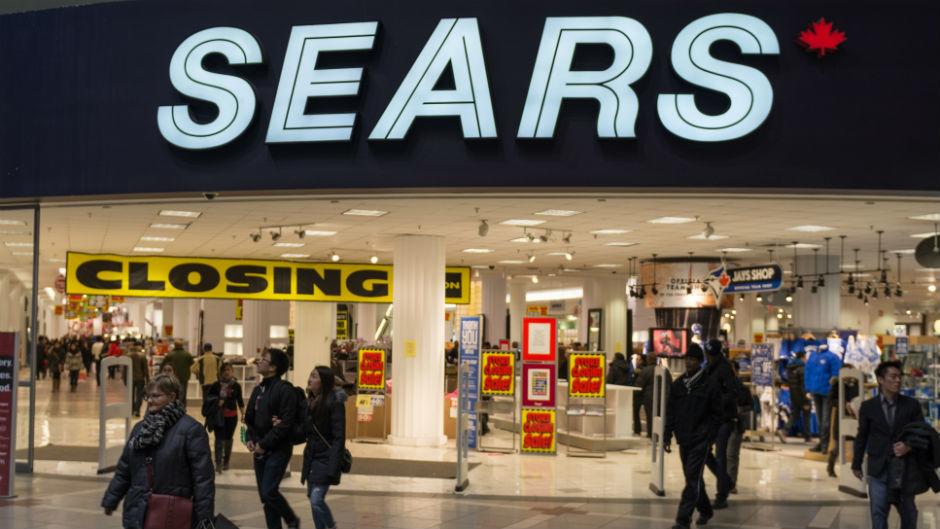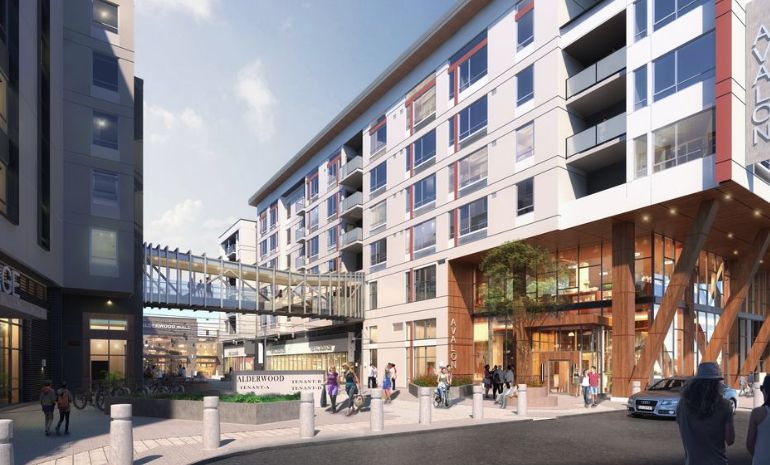 By Tyler Durden
By Tyler Durden
Over the last couple of years, we have been extensively documenting the hastening trend of abandoned malls around the country. As brick and mortar unceremoniously gives way to e-commerce, one shopping mall after the next has been left for dead, with some even starting to be reclaimed by the Earth, complete with flora and fauna.
As the malls try to cling to whatever life they have left, different ideas have emerged with how to deal with the empty spaces. Older malls are bleeding tenants and some just wind up making their way to the graveyard. Newer malls are focusing more on “entertainment” tenants instead of traditional stores.And then there’s newer ideas, like trying to turn malls into hybrid-apartment buildings. This is exactly what’s happening at the Alderwood Mall in Lynnwood, a suburb north of Seattle. The idea is to merge living spaces and commerce to move people closer to shops and lower the mall’s reliance on people traveling to get there.
It could also move malls closer to the “village square” concept they were originally envisioned to be, Bloomberg notes.
Developers at Lynnwood are transforming a part of the 41-year-old shopping center into a 300-unit apartment complex with underground parking. The project will retain part of the shopping mall, and commercial tenants will occupy 90,000 sq. feet of retail. The residences will replace one of the mall’s anchor stores, Sears, that shut down last year.
Brookfield Properties, which owns the property and is collaborating with AvalonBay Communities, Inc. on the residential component, told Bloomberg:
This project is a great example of evolution in the shopping center industry. Today, people prefer to live in smaller spaces and want walkable developments rather than relying on vehicular transit. This project caters to these needs.

Right before the pandemic, a lot of these malls thought restaurants and entertainment would be their savior, the new anchors. Those hopes are dashed. There’s even a question if movie theaters are going to survive.
The Lynnwood project could be a litmus test for the rest of the country and the idea of mall-to-residence conversion. Seattle has a housing shortage and is planning a rail stop to Lynnwood by 2024. If these ideas catch on in Seattle, they could become reality around the rest of the country.
See: 177 Different Ways to Generate Extra Income
Nick Egelanian, president of retail consultancy SiteWorks, said:
There have been some great examples of this kind of redevelopment, such as Tyson’s Corner in Virginia, but it’s very specific to individual cases, and very expensive. If it’s a good location, you can backfill that with residential, hotel, office and entertainment.
Brian Lake, a senior attorney at the Pacific Legal Foundation who focuses on housing issues, says the conversions should become common everywhere:
We need to open up every opportunity possible to develop new affordable housing.
All the while, mall operators continue to have a brutal 2020. They entered the year already facing unprecedented headwinds from e-commerce and are now struggling to deal with a pandemic that has all but shut down, or cleared out, brick and mortar malls nationwide.
White concluded:
Before the Great Recession we had too many retail spaces; now we have way too many retail spaces. It may be we’ll only be left with the A malls. Before the pandemic, I thought the B-plus malls would survive. The outdoor lifestyle centers will survive — they’re perceived as safer than indoors. But it’s hard to escape the fact that we’ve trained people to fear the world, and that it’s going to have long-term impacts on their behaviors.
Source: Zerohedge
Subscribe to Activist Post for truth, peace, and freedom news. Send resources to the front lines of peace and freedom HERE! Follow us on SoMee, HIVE, Parler, Flote, Minds, and Twitter.
Provide, Protect and Profit from what’s coming! Get a free issue of Counter Markets today.


Be the first to comment on "Abandoned Malls Are Now Being Turned Into Hybrid Apartment Housing"